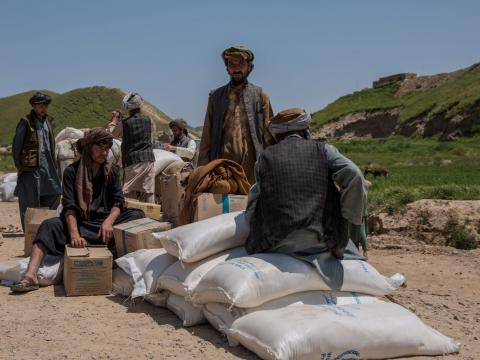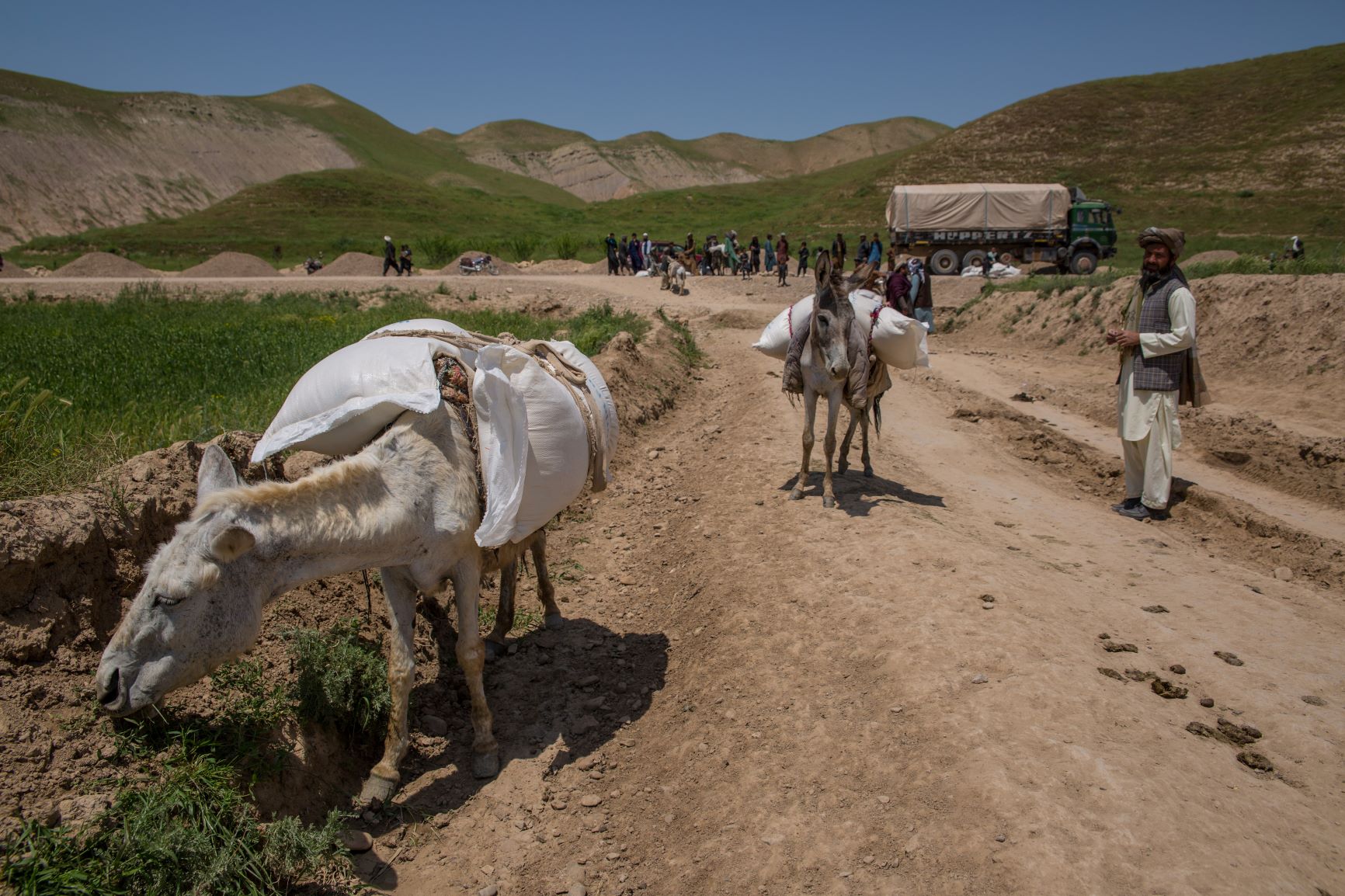“Until our fields have recovered from the drought, we’ll have this food”

In rural Afghanistan, food distributions support drought-affected farmers and their families
As one of the worst droughts in history swept over Afghanistan’s Badghis province last year, Abdul’s village in Moqur district was haunted by death.
“First it was the crops, then the animals,” he remembers. “We lost donkeys and oxen because we weren’t able to feed them. Then we started worrying about our children.”
While older people turned frail, many children fell sick. “They were lacking nutrients and food. We just didn’t have anything to give them,” says Abdul.
With tens of thousands of people packing their bags and leaving their villages behind, Adbul was ready to follow into their footsteps.
“I have five children - three girls and two boys - and they were suffering,” he remembers. “If it hadn’t been for the distribution, we would have left.”
At the height of the drought, World Vision in partnership with World Food Programme started passing out food to the worst affected people in Moqur district. Abdul was one of them. For the past year, he’s been receiving wheat Flour, Peas, Oil, Salt and Plumpy Doz.

Today he’s come again. He did the two-kilometre journey to the distribution site on his donkey, a purple blanket shielding his head from the scorching sun. At first sight, it’s hard to make out what’s happening in the distance: A truck is parked in the middle of an unpaved dirt road that winds its way through the green spring hills of Moqur. It’s surrounded by men, many of whom have brought their donkeys, some even brought their children. Most of them are busy dragging white sacks full of flour onto their donkeys, strapping them tightly to the animals with thick string.
“That’s how we usually get our food,” explains Abdul. He’s come alone today, saying that his children are in school.
He silently admits that the drought completely defeated his family. “We lost everything and it’s been a slow recovery,” he says. “This year we’ve had lots of rains and the harvest looks promising, but I couldn’t plant as much as I would have liked to because I lost my oxen and they plough the fields.”
Abdul uses his hands to count the seeds that he’s planted this year: wheat, barley, sesame and watermelon. It’s a small field, but he’s waiting eagerly for his harvest.
There’s a lot to worry about in Moqur, he admits. Ongoing fighting has put many villagers in danger, with fears of airstrikes and crossfire costing people sleepless nights.
“Between the drought and the war, it’s not a good place for my children,” he says. His home is part of a cluster of small mud houses, fenced in by steep hills. Last year they were brown and dusty, not a single crop survived. Now they are green once again and in full bloom.
Photos and the text by Stefani Glinski